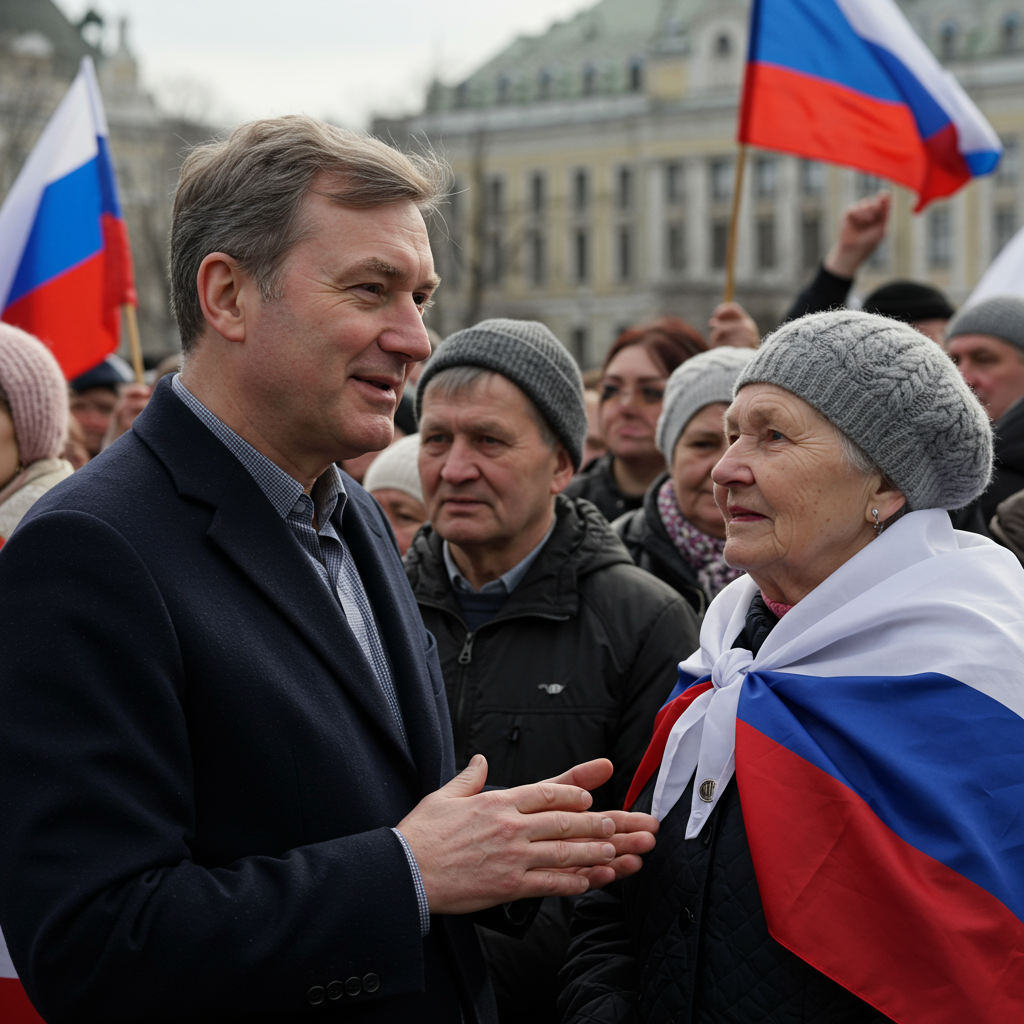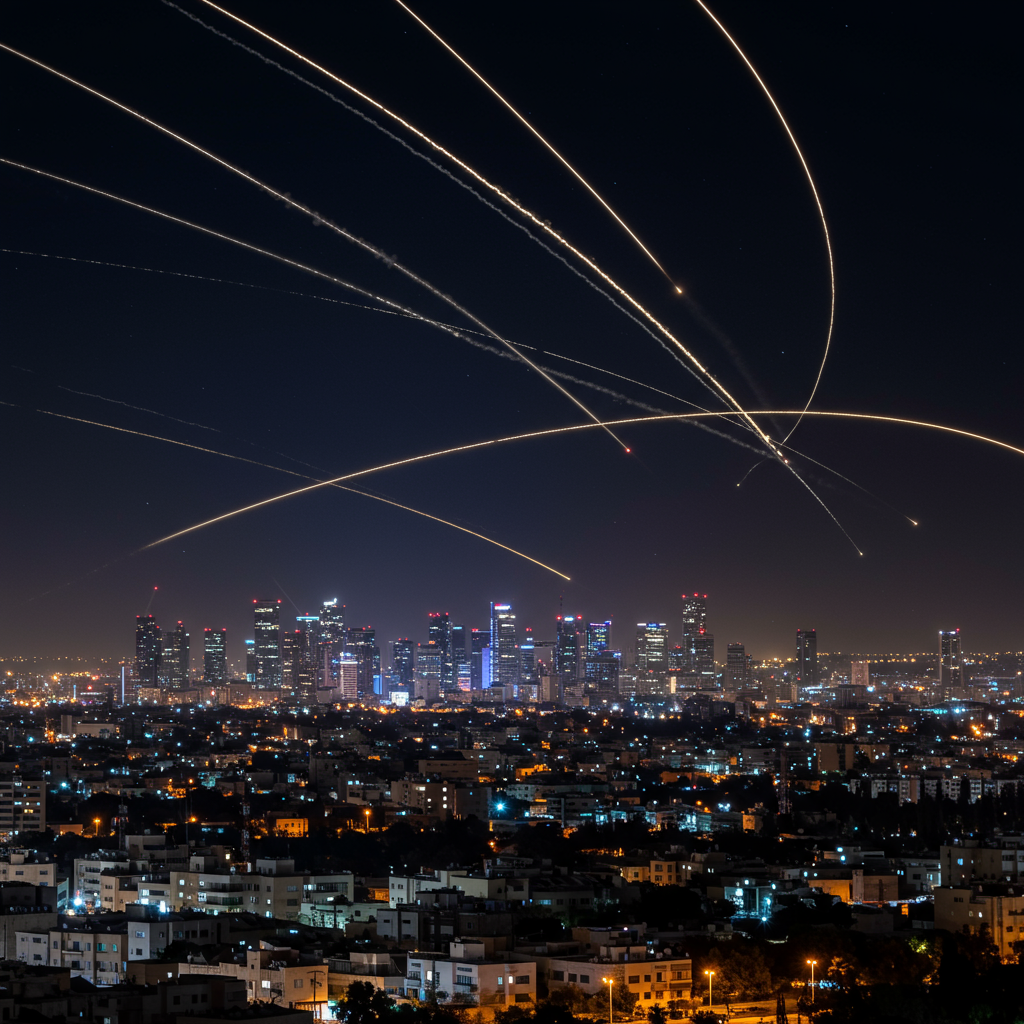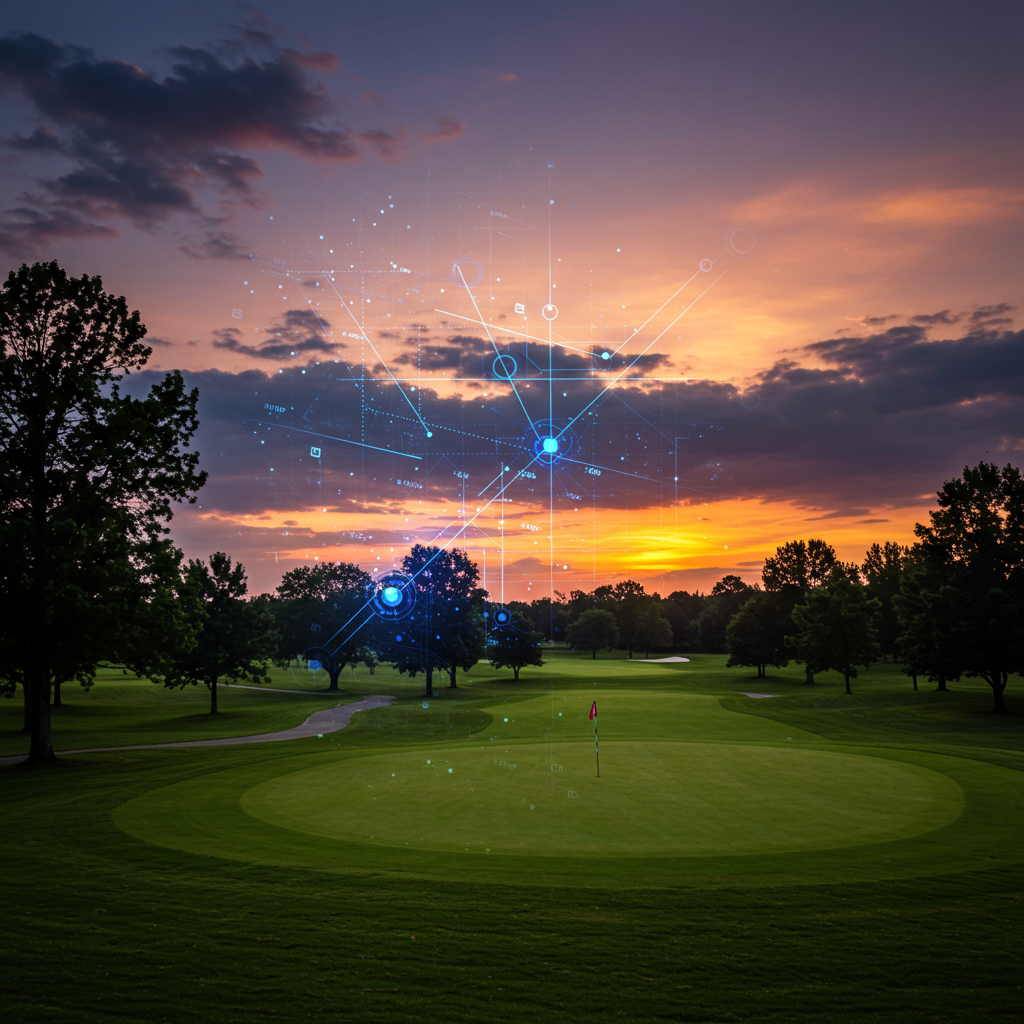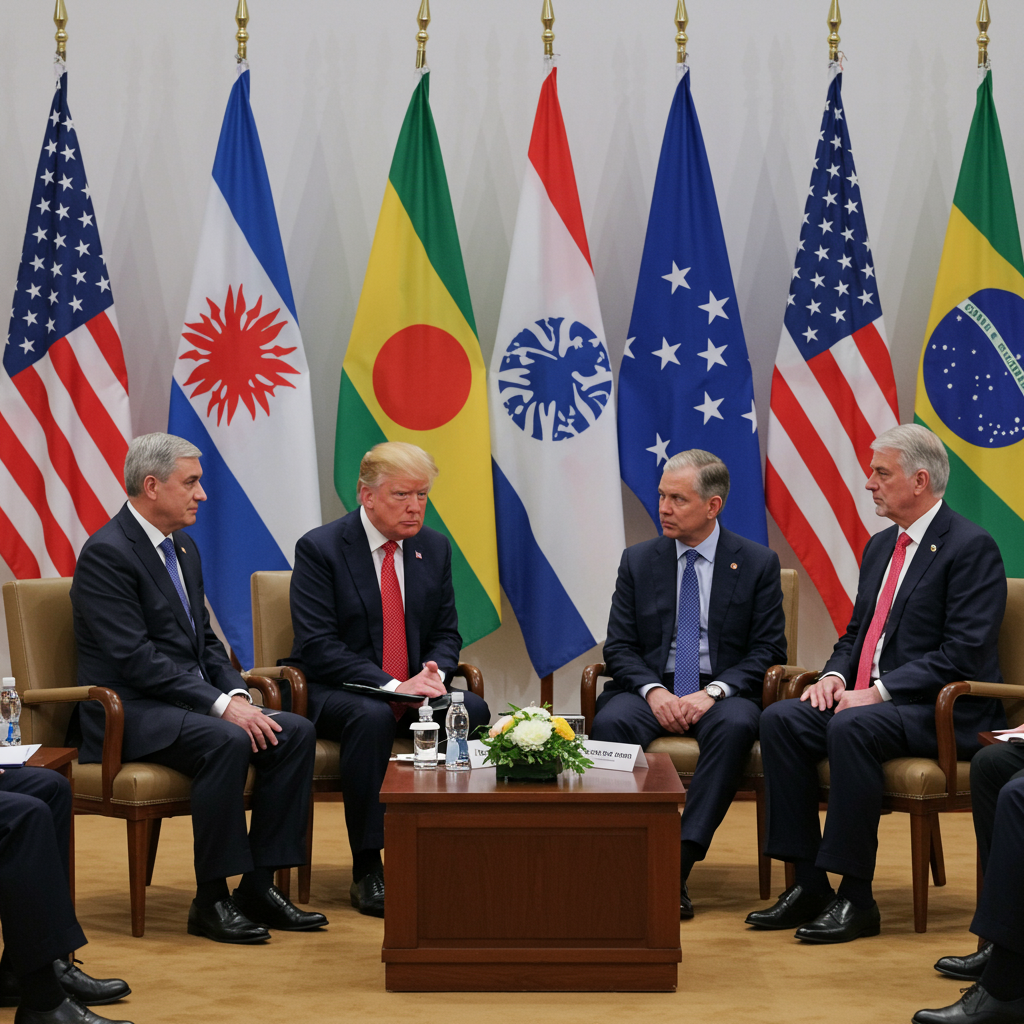Amidst a landscape saturated with potent historical symbols and pervasive state messaging, exploring public sentiment within Russia offers crucial insights into the nation’s perspective on the ongoing conflict in Ukraine. Veteran BBC Russia editor Steve Rosenberg recently visited a ‘Patriotic Festival’ just outside Moscow. Here, ordinary Russians shared their deeply personal and sometimes divergent views on how they believe the war might ultimately conclude. This snapshot reveals a complex interplay between official narratives, historical identity, and individual hopes or anxieties about the future.
The Weight of History Shapes Modern Patriotism
Russia’s national identity is profoundly intertwined with its historical triumphs and sacrifices, particularly the Soviet victory over Nazi Germany in World War Two, often referred to as the Great Patriotic War. This historical narrative, celebrating victory while acknowledging immense loss (over 27 million Soviet deaths), serves as a cornerstone of national unity. The government under Vladimir Putin has actively leveraged this powerful historical legacy. It draws a direct, deliberate line between the fight against Nazism in the 1940s and the current military actions in Ukraine.
Recent commemorations, such as the 80th anniversary of the 1945 victory, have highlighted this connection intensely. Events across Russia included dramatic historical re-enactments. One staged near Moscow depicted a final battle for Berlin. It featured explosions and fighting, watched by large crowds who saw a swastika symbolically replaced by the Soviet hammer and sickle – a potent symbol of victory. These events are not mere historical remembrance. They are framed to portray Russia’s current conflict as a necessary continuation of this historical struggle against perceived fascism or external aggression.
Framing the Conflict as a Continuation of the Great Patriotic War
The official narrative consistently presents the “special military operation” in Ukraine as a defensive action. It is cast as a fight against a resurgent Nazism and “Eurofascism” allegedly threatening Russia. This reframing positions Russia, despite initiating the invasion, as a victim defending itself. This is a significant evolution from the historical role of the Great Patriotic War as simply national “glue.” Now, figures like columnist Andrei Kolesnikov note its portrayal as “the first step in our permanent war with the West.”
This narrative is relentlessly reinforced across Russian society. State media plays a critical role in disseminating this message. Television broadcasts frequently depict the West as historically untrustworthy. Documentaries like “Europe Against Russia. Hitler’s Crusaders” focus on wartime collaboration with Nazis. Critically, such programming often omits uncomfortable historical facts, like the 1939 Molotov-Ribbentrop Pact. This selective history supports the contemporary claim that Russia is once again fighting against historical enemies.
Propaganda Permeates Public Life and Symbolism
The connection between the historical past and the present conflict is made visible through widespread symbolism. A monument near Moscow explicitly links a WW2 Red Army soldier with a contemporary Russian soldier fighting in Ukraine. It features an inscription connecting past preservation to future defense. Framed photos of soldiers killed in Ukraine are often displayed below these memorials. This creates a tangible link between historical sacrifice and current losses.
The Russian word for ‘Victory’ (‘Pobeda’) is highly visible on billboards and posters. Commemorative symbols extend to unusual places. A Soyuz rocket was decorated for the 80th anniversary. Newborn babies in Siberian maternity hospitals were photographed in miniature Red Army uniforms. Such acts symbolize connecting generations to this narrative. Special “victory trains” on the Moscow Metro feature WW2 imagery and slogans like “Be proud!” and “Remember!”. These displays underscore the deep societal penetration of this theme.
Even far from the front lines or Moscow, patriotic themes are overt. In Chita, Siberia, ice sculptures of soldiers with Kalashnikovs replaced traditional holiday decorations. These militaristic displays were intended to promote a “patriotic new year.” Residents often approved, calling them “right” and “topical” given the current situation. The letter “Z,” a symbol of the “special military operation,” is widely displayed. Schoolchildren are encouraged to write festive letters to soldiers in Ukraine instead of Father Christmas.
Articulating “Russian Values”
Many Russians express support for the military action using language echoing state narratives. Some residents in Chita, for example, cited the need to defend against “Nazis” and “LGBT propaganda.” They described these as “alien ideas” threatening Russia. This sentiment emphasizes embracing “Russian values.” While difficult for some to articulate precisely, it forms a core motivation for support. Previously, such explicit declarations of feeling threatened by external “Nazis” or needing to fight for “Russian values” were less common among ordinary citizens.
This shift in public discourse is largely attributed to state propaganda. The media landscape is tightly controlled. This has convinced many Russians that the country faces an existential battle with the West. Hearing people repeat anti-Ukrainian and anti-Western rhetoric from state TV is a frequent observation.
Mixed Views Emerge at the Festival
Against this backdrop of official narratives and pervasive symbolism, the public sentiment observed at the ‘Patriotic Festival’ near Moscow by Steve Rosenberg reveals nuances. While the festival itself is part of the state-promoted patriotic environment, attendees held differing opinions on the conflict’s eventual outcome. Some expressed a hope for a peaceful resolution. Others were convinced of an inevitable Russian victory.
These varied perspectives reflect the complex reality within Russia. While propaganda is influential, personal experiences and individual assessments likely play a role. Someone with family members fighting in Ukraine, for instance, might harbor deeper anxieties or desires for peace than someone whose life is less directly impacted. Similarly, different levels of trust in official sources or exposure to alternative viewpoints (however limited) can shape how individuals process the ongoing war.
Personal Costs and Lingering Doubts
Despite the official confidence often projected, the war has been costly. The conflict has lasted over three years, contrary to initial expectations. It has incurred huge casualties. Personal stories reveal the human impact beyond the patriotic rhetoric. Katya, whose grandfather died near Berlin in WW2, noted her son is now a volunteer soldier in Ukraine. This highlights a tragic generational continuity of military service. However, the circumstances are vastly different – fighting on home soil against invaders in 1941 versus invading a neighboring country in 2022.
Veteran Fyodor Melnikov, 98, whose brother died in WW2, expressed profound anti-war sentiment. “War is a terrifying thing… People should be allowed to live freely,” he stated. His perspective underscores the immense personal cost of the 1945 victory, offering a poignant contrast to the celebratory militarism sometimes on display. Even among those who accept the official narrative, like Ludmila in Chita who supports defending the “motherland,” worry exists for friends who have been mobilized.
Some dissenting voices, though risking legal repercussions, offer alternative viewpoints. Ivan Losev was fined for social media comments questioning the war. He views such actions as signs of “stupid laws” and predicts the “downfall of an empire.” He contrasts true patriotism – loving and constructively criticising one’s country – with the current state focus on “bombing Ukraine to pieces” rather than improving life within Russia itself.
The juxtaposition of overt patriotism with underlying anxieties or practical concerns (like Chita’s heating issues despite vast gas reserves) suggests a complex public mood. While official narratives provide a framework for understanding the conflict, personal realities and the sheer human cost of the war inevitably influence how Russians view its duration and potential conclusion. The varied opinions heard at the festival near Moscow offer a glimpse into this layered national sentiment.
Frequently Asked Questions
How does the Russian government connect the Ukraine war to World War Two history?
The Russian government extensively uses the narrative of the Soviet victory in the “Great Patriotic War” (WW2) to justify the current conflict in Ukraine. They portray the war as a continuation of the fight against Nazism and fascism. Through state media, monuments, historical re-enactments, and public symbols like the “Z” sign, they frame Russia’s actions as defending itself against perceived external aggression and a resurgent “Eurofascism.” This narrative aims to unify the nation and legitimize the military operation by linking it to a deeply revered historical victory.
Where might displays of Russian patriotic or militaristic sentiment be seen?
Displays of patriotic and militaristic sentiment related to the Ukraine conflict are visible across Russia. They appear at national events like Victory Day commemorations and specific “patriotic festivals” like the one near Moscow mentioned in this article. They are also seen in public spaces in cities nationwide, sometimes replacing traditional decorations, such as the ice sculptures of soldiers in Chita, Siberia. State television and other media heavily feature patriotic messaging and symbols like the letter “Z.” Monuments linking WW2 soldiers with current troops are also being erected.
Why do some Russians support the war while others express a desire for peace?
Russian public opinion on the war’s outcome varies due to a combination of factors. State propaganda significantly influences many, leading them to accept the official narrative that Russia is fighting against “Nazis” or defending itself from the West. For others, personal experiences, such as having family members serving in Ukraine, can foster anxieties or a desire for peace. Historical memory, personal values, and varying levels of exposure to information beyond state-controlled media also contribute to differing views, resulting in a mix of hopes for peaceful resolution and conviction in Russian victory.
Conclusion
The scene at the patriotic festival near Moscow offers a microcosm of the complex public mood within Russia regarding the conflict in Ukraine. While official narratives strongly frame the war through the lens of historical victory and defensive struggle against external threats, individual Russians hold a range of opinions on how and when the conflict might end. These views are shaped by a powerful historical identity, pervasive state propaganda, personal experiences, and the undeniable human cost of the ongoing war. Understanding this internal landscape is crucial for grasping the various perspectives present within Russia as the conflict continues.




